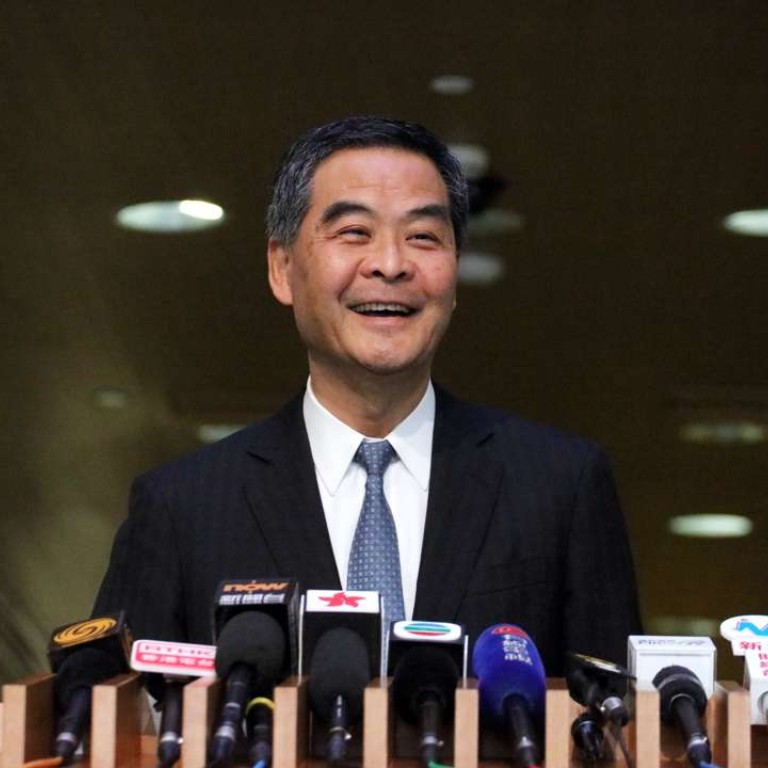
Leung Chun-ying plays down political divide in Hong Kong as he welcomes new Legco faces
Those who campaigned for my removal lost, chief executive says, but young radicals are already plotting ways to oppose him
Hong Kong’s leader put a positive spin on the results of Sunday’s Legislative Council elections, insisting that candidates who campaigned for his removal had been voted out and welcoming new faces, even though some of the younger ones were already planning to make life difficult for him.
Chief Executive Leung Chun-ying also rejected claims that the election results showed people were unhappy with his government, suggesting instead that voters had in fact struck a blow against the pan-democrats who used radical tactics like filibustering to oppose his policies.
Leung again refused to talk about his chances of running for a second term. “The Legco election results have nothing to do with the chances of anyone who aspires to be the next chief executive of Hong Kong,” he said.
But some observers accused Leung of being “delusional” and warned that Beijing would take the Legco election results into consideration when appraising his performance.
Leung said he was “pleased to see a number of new faces” in the new legislature and he would arrange for them to visit the mainland – an offer that was rejected. Two of the new faces from the localist camp were already thinking of new strategies to oppose him in their new capacity as elected lawmakers.
Nathan Law Kwun-chung of Demosisto and Sixtus “Baggio” Leung Chung-hang of Youngspiration said they would take up the filibustering torch to block unpopular government policies.
The vote share of the pro-establishment camp in the geographical constituencies shrank from 44.1 per cent in the last polls in 2012 to about 40.3 per cent.
The pan-democrats lost several of their veteran lawmakers, but together with the localists, managed to hold on to their crucial minority threshold of 24 seats needed to veto constitutional changes.
“Some candidates who obviously disagree with me seeking another term also failed to be elected,” the chief executive noted. He did not name anyone, but maverick businessman Ricky Wong Wai-kay was one of the prominent losers, running on an “ABC” or “Anyone but CY” campaign.
On the rise of localists, who captured six seats to enter the legislature for the first time, the chief executive said: “A large number of voters were dissatisfied with the performance of the pro-democracy lawmakers in the past, and they did not formerly vote for the pro-establishment camp.
“That is why they voted for those candidates who were not in either of the camps, leading to such election results.”
Professor Lau Siu-kai, vice-chairman of the semi-official mainland think tank, the Chinese Association of Hong Kong and Macau Studies, said Beijing fully understood that the election results reflected deep public discontent with the Leung administration.
Beijing would certainly look at the changed political landscape when deciding on the next chief executive, he said. “In the eyes of the central government, there is no Hongkonger who cannot be replaced.”
Veteran Democrat James To Kun-sun said: “Mr Leung must think Hong Kong people are stupid. Our election platforms state clearly that we oppose him getting a second term.”
Leung Chun-ying said the government was very pleased with the record high turnout for the polls, and welcomed 26 new faces entering Legco for the first time.

